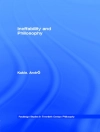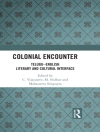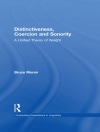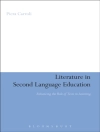This book presents conceptual and empirical studies on how pedagogies of multiliteracies can empower language learners, teachers, and teacher educators in an increasingly globalized yet unequal world, with a focus on social justice in language education. The chapters offer critical and innovative pedagogical insights that contribute to re-envisioning language and literacy education in the 21st century in a number of educational contexts, including post-secondary, community, refugee, science, language, and teacher education. From a raciolinguistic critique of monoglossic education in the United States to drama-based pedagogies for refugee learners in Iceland, this book contextualizes language learner empowerment by identifying and confronting ideologies of race, gender, nationality, and language. Creative multimodal and multisensorial pedagogies are enacted through learner-designed plurilingual portfolios, infographics, picturebooks, identity texts, performance, andmuseum-based learning. This book diversifies and enriches current approaches to language education based on pedagogies of multiliteracies that cultivate learner agency, identity, and critical reflection, and it will be of interest to readers with backgrounds in second/foreign language education, TESOL/ESL, sociology of education, and applied linguistics.
İçerik tablosu
.- Chapter 1: Introduction.
.- Chapter 2: Multimodality and learning: Desiderata for designing social futures.
.- Chapter 3: Interweaving Freirean perspectives with a pedagogy of multiliteracies: Convergencies, divergencies and implications for L2 education.
.- Chapter 4: Rethinking assessment in foreign language teaching: Fostering semiotic agency through multiliteracies approaches.
.- Chapter 5: If I said something, they would make me say it again in English: A raciolinguistic critique of monoglossic language education.
.- Chapter 6: Preparing EFL teachers to reflect on students’ social identities of race through multiliteracies.
.- Chapter 7: The limits of (building) agency in language education: A plurilingual student’s perceptions on developing multiliteracies and agency through student-designed portfolios.
.- Chapter8: Unpacking EFL learners’ agency at the intersection of global citizenship and marginalization of local identities through a multiliteracies approach.
.- Chapter 9: Multiliteracies and Picture books: A gender-based critical and aesthetic engagement with social justice through a nonfictional heroine.
.- Chapter 10: Recognizing and building upon multilingual students’ identities and knowledges in mainstream science classrooms.
.- Chapter 11: Empowering upper elementary multilingual learners in science using infographics.
.- Chapter 12: Supporting multilingual students’ agency and identities through equity-oriented, critical consciousness, and community-focused multiliteracies.
.- Chapter 13: Ukrainian refugees learning Icelandic through drama plays: A multiliteracies perspective.
Yazar hakkında
Vander Tavares is an Associate Professor at Inland Norway University of Applied Sciences. He focuses on language and teacher education, and internationalization of higher education. He is the co-editor of Language Teacher Identity: Confronting Ideologies of Language, Race, and Ethnicity and Critical and Creative Engagements with Diversity in Nordic Education.












